Dogs are one of the most beloved and popular pets in the world. They are known for their loyalty, affectionate nature, and playful personalities as pets.
When your dog suddenly stops eating breakfast but continues to eat dinner, it can be concerning and puzzling for pet owners. Mealtime habits are an essential part of a dog’s routine, and changes in eating behavior may indicate underlying health issues, environmental factors, or simply a shift in preferences.
Understanding the reasons behind this change and implementing appropriate management strategies are crucial to ensure your dog’s well-being and maintain a healthy feeding routine. Here, we will guide you through everything you need to know about dogs who stopped eating breakfast but ate dinner and how to encourage them to eat again.
We’ll discuss the possible reasons behind the change in their eating habits, from health dental issues to routine changes. Read on to learn more about how you can help your canine companion maintain a healthy appetite and lifestyle.
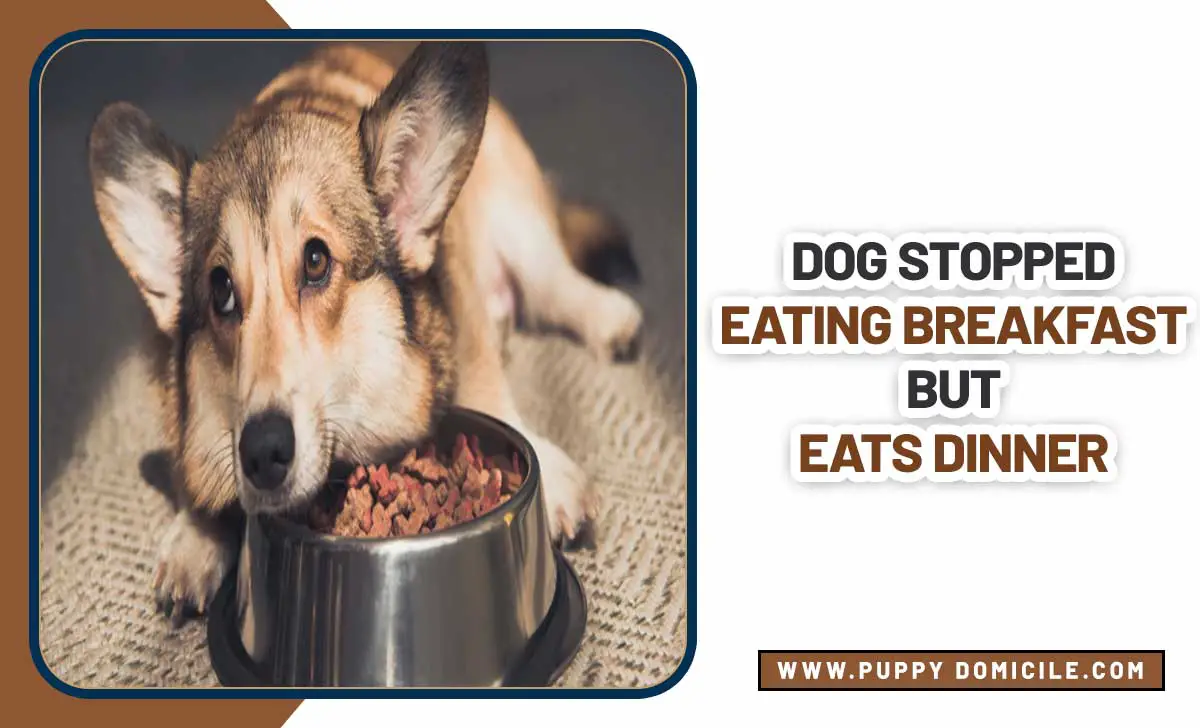
How Many Times Do Dogs Have Meals In A Day?
If you are wondering about any visible abnormalities in your dogs’ feeding schedule, then it’s worth the concern. You must know how many times a dog would take the meal. Dogs typically have meals once or twice a day, depending on their age, size, and needs.
Adult dogs often thrive on one or two meals daily, while puppies and very active dogs may require three meals to support their growth and energy levels. Establishing a consistent feeding schedule that aligns with your dog’s dietary requirements and lifestyle is essential.
Typically, pet dogs may vary their eating schedule according to their owners’ feeding frequencies. But what does the internet say about dogs eating habits?
“The number of meals a dog eats per day depends completely on the family schedule. Dogs should eat at least two meals each day, about 12 hours apart. But a breakfast, lunch, and dinner schedule is an equally great option. If more than 12 hours elapses between meals, the stomach can become hyperacid causing nausea.”
Reasons For Changes In Eating Habits
There can be several reasons why a dog may stop eating breakfast but continue to eat dinner. If you’re concerned about your dog’s change in eating habits, it’s always best to consult your veterinarian for further guidance and evaluation. They can help determine if there are any underlying issues and provide appropriate recommendations for your furry friend’s health and well-being.
Some possible explanations for this change in eating habits include:
- Loss Of Appetite: Dogs, like humans, can have days where they don’t feel as hungry. If your dog is otherwise healthy and showing no other signs of illness, it could just be a temporary decrease in appetite.
- Preference For Evening Meal: Some dogs may naturally prefer to eat later in the day. This could be due to their internal body clock or simply personal preference.
- Medical Issues: It’s important to rule out any underlying medical issues that could be causing the change in eating habits. Dental problems, gastrointestinal issues, or other health conditions could affect your dog’s appetite.
- Environment Or Routine Changes: Changes in the household routine or environment can sometimes lead to changes in eating habits. If there have been recent changes in your dog’s surroundings or schedule, it could be impacting their appetite.
Possible Reasons Why Your Dog Stopped Eating Breakfast
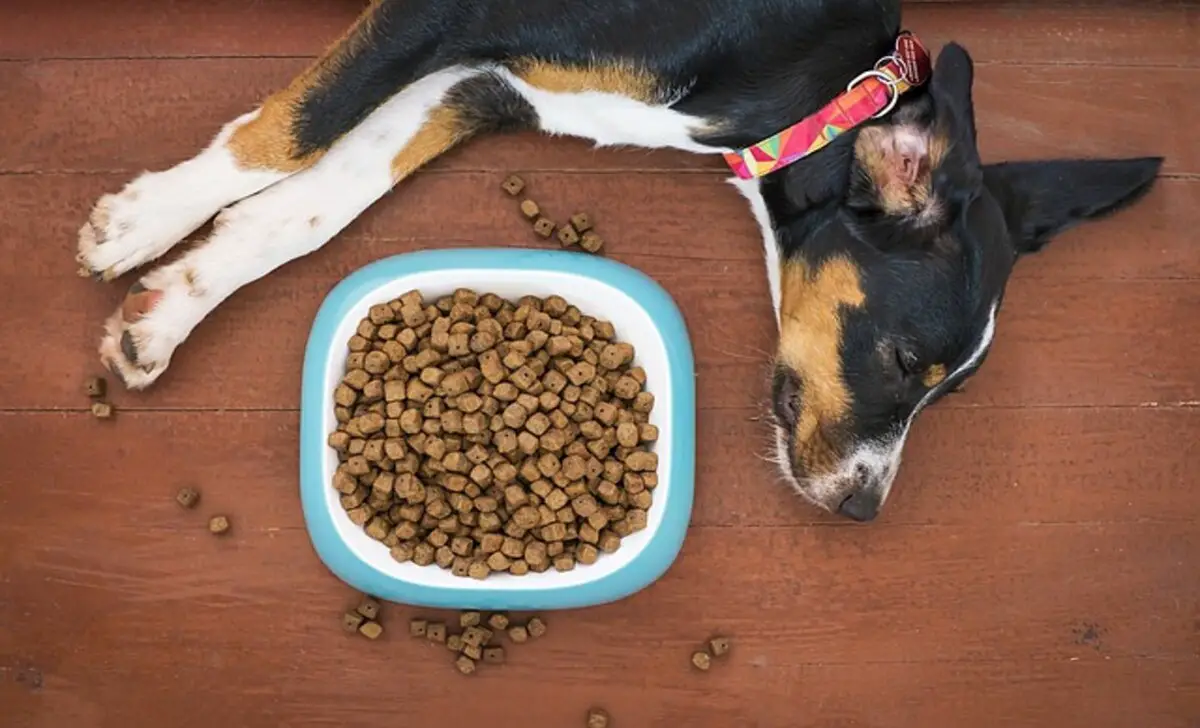
There are several reasons why your dog might stop eating breakfast. One possibility is that your dog has become a fussy eater, particularly if you recently changed their regular food. Older dogs may also experience changes in appetite due to age-related health issues.
The transition might take some adjustment if you’ve introduced raw food into their diet. Additionally, meal time disruptions or inconsistencies can affect their eating habits. A healthy dog usually maintains a consistent appetite, so a sudden change could signal a health concern.
As a responsible dog owner, consider whether recent treats or participation in dog sports might be affecting their hunger. Monitoring dog health and consulting with a vet can help address any underlying issues. Here are some possible reasons why your dog stopped eating breakfast. There are several possible reasons why your dog may stop eating breakfast but continue to eat dinner:
1.Routine Change
Dogs, known for their habitual nature, thrive on daily routines, and any alterations can easily impact their eating patterns. Just like humans, dogs can be sensitive to changes in their schedule. This might explain why your furry friend suddenly loses interest in breakfast and eagerly awaits dinner.
A shift in waking hours or a variation in the morning activities could throw off their breakfast routine. This will lead to a decreased appetite during this mealtime. Pay attention to even subtle changes in your dog’s routine is crucial. They can significantly impact their eating habits.
2.Medical Issues
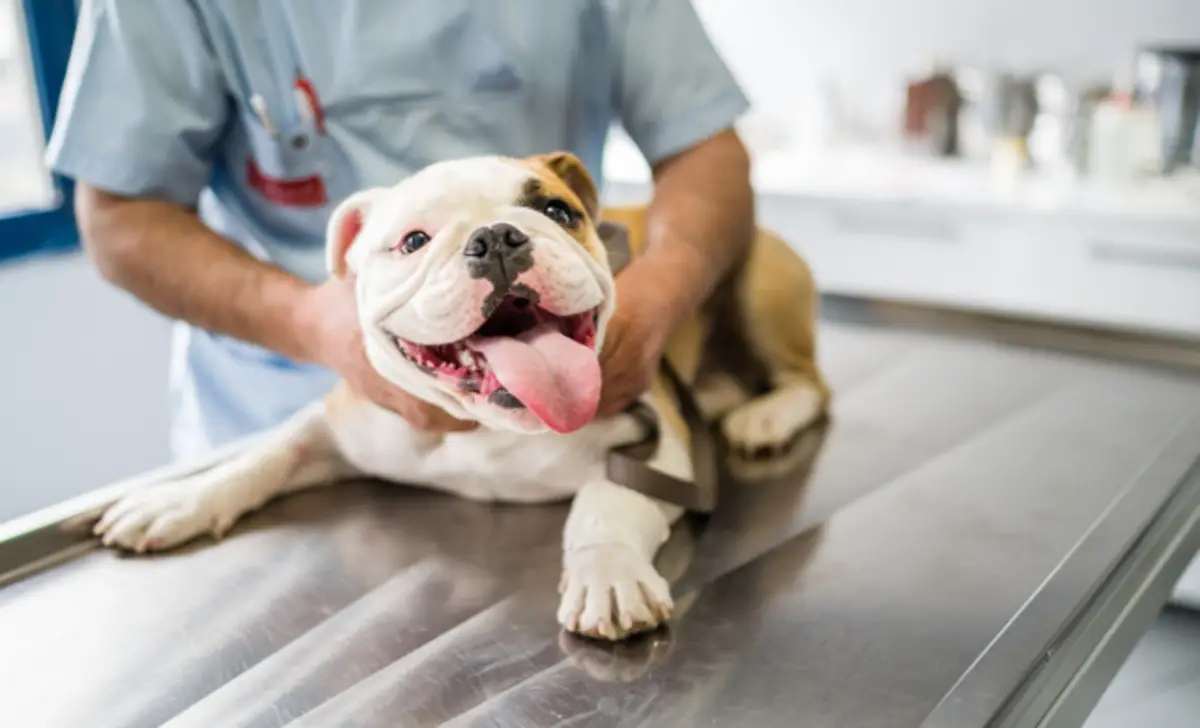
Health issues are important to consider when your dog changes their eating habits. Dental problems, gastrointestinal issues, or other medical conditions could decrease appetite. This is where your dog might refuse breakfast but still eat dinner.
This behavior could signify an underlying health concern that should prompt a visit to the vet. It’s vital to monitor your dog’s overall well-being and consult with a professional to rule out any potential health issues that may be affecting their appetite.
3.Stress Or Anxiety
The manifestation of stress in dogs can significantly impact their daily routines, notably affecting their appetite. When faced with stressful situations, dogs may find it challenging to consume their breakfast, which is typically associated with higher cortisol levels in the morning, reflecting their body’s natural response to stressors.
The morning meal can become particularly challenging for dogs experiencing anxiety, causing them to exhibit a decreased appetite during this time of day.
4.Environmental Factors

During hot weather or extreme temperatures, dogs may have a decreased appetite in the morning but feel more inclined to eat later in the day when it’s cooler. Environmental factors such as loud noises, unfamiliar surroundings, or disruptions during breakfast time can cause dogs to lose their appetite.
5.Food Preferences Or Sensitivities
Just like humans, dogs have preferences when it comes to food. Your dog may simply prefer to eat later in the day or may have developed a preference for certain types of food that you offer at dinner time. If your dog experiences digestive issues or discomfort after eating breakfast, they may associate it with the morning meal and refuse to eat. In such cases, adjusting the type or timing of their meals may help.
6.Aging Process
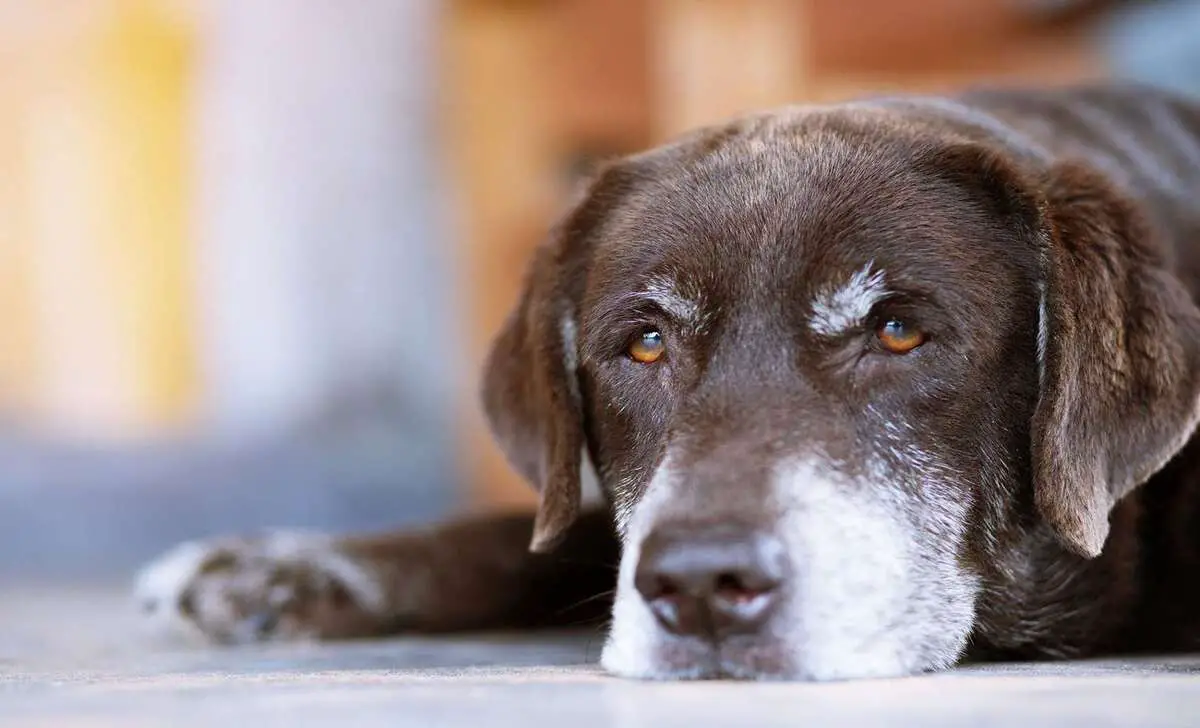
As dogs mature, it’s common for their eating habits to shift. With age, a dog’s metabolism can slow down, affecting their appetite. This change may lead to a decreased interest in breakfast while maintaining a healthy appetite for dinner. This adjustment in their eating pattern is a natural part of the aging process for many dogs.
Owners may notice their older furry companions becoming more selective about their morning meals but eagerly anticipating their evening dinner. It’s important for pet parents to understand that these changes in eating habits are often a normal part of their dog’s life as they grow older.
7.Excessive Treats Or Snacks
If your dog has suddenly become disinterested in their morning meal but happily eats dinner, there could be various reasons behind this change in their eating habits. One common culprit could be overindulgence in treats or snacks throughout the day, leading to a decreased appetite at breakfast time.
By reducing the number of treats and snacks offered to your furry friend between meals, you can help ensure that they are more inclined to eat their breakfast. By establishing a structured feeding routine and sticking to a consistent schedule, you can better regulate your dog’s appetite and mealtime behaviors.
8.Behavioral Issues
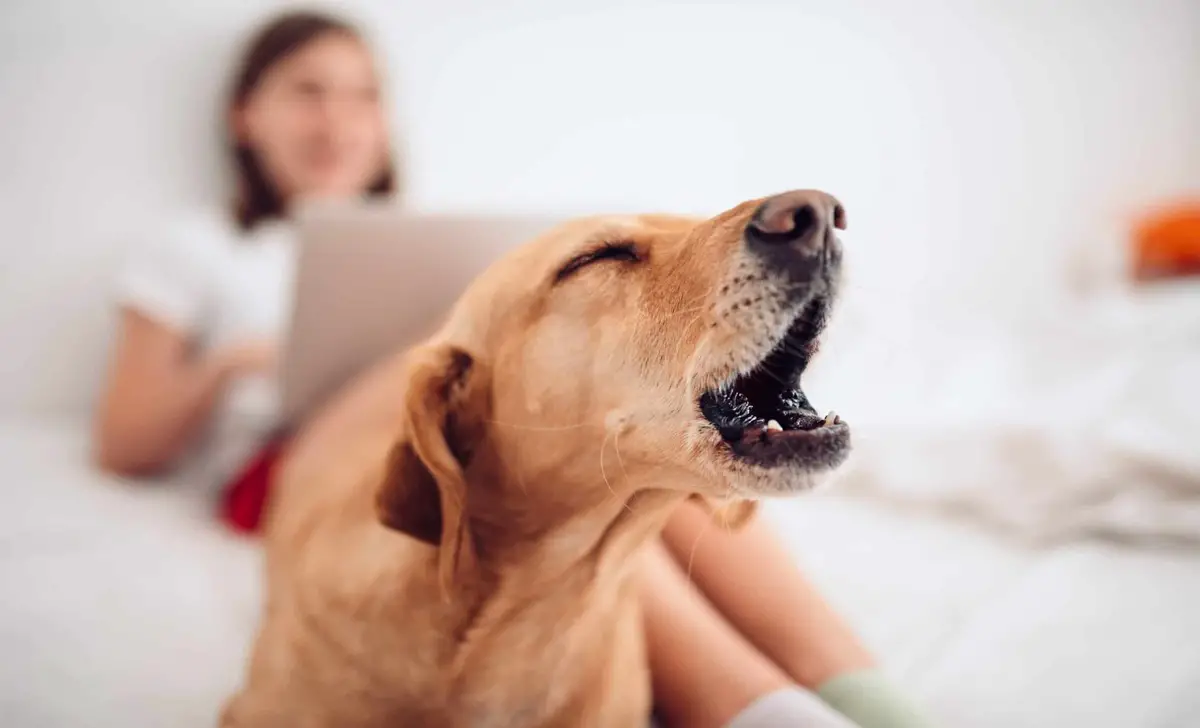
It’s essential to monitor your dog’s eating habits closely and consult with a veterinarian if you notice any significant changes in their appetite or behavior. Behavioral issues such as food guarding or dominance may also affect your dog’s eating habits. Working with a professional dog trainer or behaviorist can help address these issues.
How To Encourage Your Dog To Eat Breakfast Again
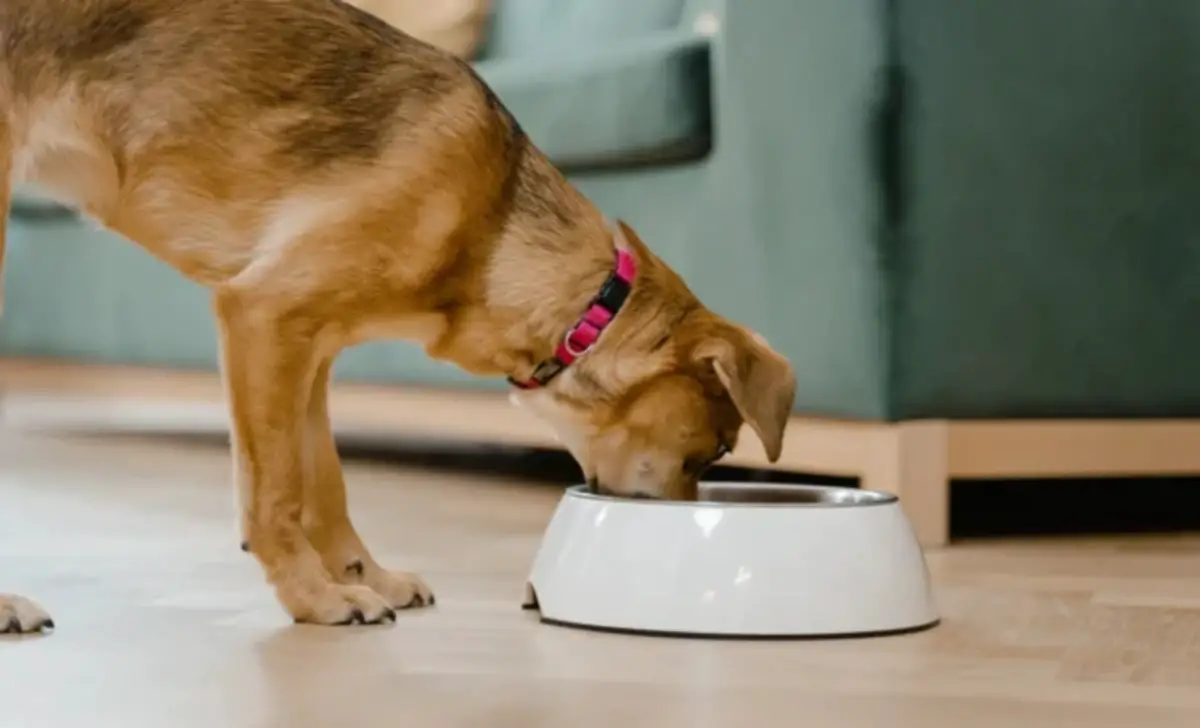
If your dog has developed a habit of skipping breakfast. It’s important to address the issue promptly to maintain its overall health. One way to encourage your dog to eat breakfast again is by adjusting their feeding time or amount. Consider offering smaller meals throughout the day instead of one large meal in the morning.
Additionally, you can offer more appealing food choices or make mealtime more enjoyable with treats or toys specific to breakfast time. Monitoring your dog’s behaviour and tracking their eating habits while changing their routine is crucial. Consult with a veterinarian if your dog’s lack of appetite persists to rule out any underlying health issues affecting their eating habits.
Adjusting Feeding Time Or Amount
Maintaining a consistent feeding schedule is crucial to encourage your dog to eat breakfast again. If your dog seems uninterested in breakfast, try adjusting the food you give them at each meal or divide their daily intake into smaller, more frequent meals throughout the day. Changing the time of day, you feed your dog can also help reset their eating habits and make breakfast seem more appealing.
|
Time |
Feeding Amount |
|
7:00 AM |
1/3 of daily food |
|
10:00 AM (snack) |
Small treat or snack |
|
1:00 PM |
1/3 of daily food |
|
4:00 PM (snack) |
Small treat or snack |
|
7:00 PM |
Remaining 1/3 of daily food |
This schedule breaks down the dog’s daily food intake into smaller, more frequent meals, which may be more appealing to a dog that has lost interest in breakfast. Adjust the times and portion sizes based on your dog’s size, age, and activity level, and monitor their response to the new feeding schedule.
Offering More Appealing Food Choices
When your dog stops eating breakfast, getting them back on track can be challenging. One effective approach is to offer more appealing food choices to encourage them to eat. Dogs can be picky eaters, and rotating different flavours and dog food brands can help keep things interesting for them.
Additionally, adding wet food or mixing dry food with water or chicken broth can enhance the flavour and make it more palatable. However, it’s essential to avoid feeding table scraps, which can cause digestive issues and create bad habits. If your dog refuses breakfast, consult your vet, as it could indicate an underlying health issue requiring medical attention.
Training Techniques To Encourage Eating
There are several training techniques that you can implement to encourage your dog to eat breakfast again. Positive reinforcement is one method that has proven to be effective in motivating dogs to eat. Offering small, frequent meals throughout the day instead of one large meal can also help.
Additionally, adding wet food or toppings like chicken broth or shredded cheese can make the food more appealing and entice your dog to eat. Consistency is key, so schedule regular vet check-ups to rule out any underlying health issues causing your dog’s loss of appetite. Remember to be patient and consistent with your training; every dog is different.
What To Do When Your Dog Continues To Skip Breakfast

It can be concerning when your dog continues to skip breakfast despite your best efforts to encourage them. Not only can it be frustrating for you as an owner, but it could also be a sign of an underlying health issue before making any major changes to your dog’s routine or diet.
You must rule out any medical problems by consulting with your vet. Once you’ve ruled out any health issues, there are several steps you can take to try and encourage your dog to eat breakfast again.
Consulting With A Veterinarian
If your dog continues skipping breakfast despite your best efforts, it may be time to consult a veterinarian. Skipping meals could signal an underlying medical condition, such as dental problems or digestive issues.
A vet can help identify potential health concerns and provide treatment options accordingly. Additionally, the vet can recommend changes to your dog’s diet or feeding routine to encourage them to eat breakfast again.
It’s important to closely monitor your dog’s behaviour and appetite and make adjustments as necessary to ensure their overall health and well-being. Remember that skipping breakfast may be a behavioural issue that can be addressed with training or other interventions.
Monitoring Water Intake And Overall Health
Maintaining a close eye on your dog’s water intake can give you valuable insights into their health, especially if your dog has stopped eating breakfast but eats dinner regularly. It could be due to dehydration caused by insufficient water intake. Inadequate hydration can lead to decreased appetite and other health issues in dogs.
Therefore, watching your dog’s water dish is essential, as well as ensuring they drink enough water throughout the day. If you notice any significant changes in their water consumption or behaviour, consult a veterinarian for guidance and support.
Consistency In Schedule And Environment
Regarding managing your dog’s eating habits, consistency is key. A regular feeding schedule and a calm environment during mealtimes can go a long way in encouraging your dog to eat. Avoid feeding your pet table scraps or human food, as this can disrupt their appetite and cause digestive issues.
If your dog suddenly stops eating, consult your veterinarian to rule out any underlying health problems. Consider changing your dog’s canned food brand or type if they consistently refuse to eat their current diet. A balanced and nutritious diet is crucial, so provide appropriate meals that meet their dietary needs.
Providing A Balanced And Nutritious Diet
A balanced and nutritious diet ensures your dog’s healthy and consistent eating habits. A well-balanced diet helps to maintain your pet’s overall health, from their skin and coat to their immune system, energy levels, and digestive function. Consult with your veterinarian to determine your dog’s ideal type and amount of food based on their breed, age, weight, and activity level.
Additionally, consider feeding your pet smaller portions multiple times daily rather than one large meal to prevent overeating or skipping meals. Avoid giving them table scraps or human food as it may disrupt their digestive system and lead to health problems. Monitoring your dog’s eating habits closely can ensure they get the appropriate nutrition for optimal health.
Conclusion
When managing your dog’s eating habits, it’s essential to understand their normal behaviour and what causes changes in their routine. There could be multiple reasons why your dog stopped eating breakfast but eats dinner, including health issues, environmental changes, or dietary modifications.
To encourage your dog to eat breakfast again, you can adjust feeding times or amounts, offer more appealing food choices, or employ training techniques. However, if your dog continues to skip breakfast, consulting with a veterinarian and monitoring its overall health is crucial.
Consistency in schedule and environment and a balanced and nutritious diet are also essential for managing your dog’s eating habits. Caring for your furry friend’s health is as crucial as caring for your own.
Frequently Asked Questions
1.Do Dogs Go Through Phases Of Not Eating?
Yes, dogs can go through phases of not eating due to various reasons such as illness, stress, change in environment, dental issues, or simply being picky eaters. It is important to monitor their eating habits and consult a veterinarian if the lack of appetite persists.
2.Is It Normal For Dogs Not To Be Hungry In The Morning?
Yes, it can be normal for some dogs not to be hungry in the morning. Various factors, such as a food allergy or an upset stomach from eating grass, can influence their appetite. Additionally, specific dog breeds, like the French Bulldog, might have different eating patterns.
Older dogs, in particular, may experience changes in their metabolism and eating habits as they age. If your dog consistently shows a lack of interest in breakfast, it’s essential to monitor their overall health and consult a vet to rule out any underlying issues.
3.How Long Should I Wait Before Being Concerned About Your Dog Not Eating Breakfast?
If your Shih Tzu’s appetite changes suddenly and they refuse breakfast, it’s recommended to wait for about 12-24 hours before becoming seriously concerned. You can try offering them some peanut butter or other high-value treats to entice them to eat.
However, if the lack of appetite persists beyond a day or two, it’s best to consult a veterinarian to rule out any underlying health issues. Monitoring their behavior, energy levels, and any other symptoms can also help determine the cause of the change in appetite. Always prioritize your dog’s well-being and seek professional advice when in doubt.
4.What Are Some Things You Can Do At Home To Help Your Dog Start Eating Again?
Consider a few strategies at home to help your dog start eating again. If your dog is a picky eater or a fussy dog, try mixing wet dog food with their regular kibble to make it more appealing. Warming up your dog’s food slightly can also enhance its aroma, enticing your dog to eat.
Establishing a consistent feeding schedule can improve your dog’s eating habits. Additionally, ensure their food area is calm and free from distractions. For particularly stubborn cases, rotating different high-quality dog foods might help identify one that suits their preferences. Always monitor their health and consult a vet if the issue persists.
5.Why Is My Puppy Not Eating Dry Food?
Your puppy might not like dry food due to being accustomed to wet or homemade food. Dental or gastrointestinal issues may also be why they avoid it. Stress or changes in routine can also cause a loss of appetite.
